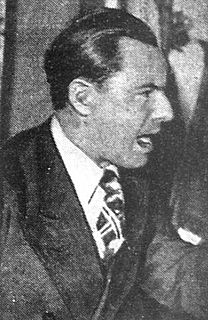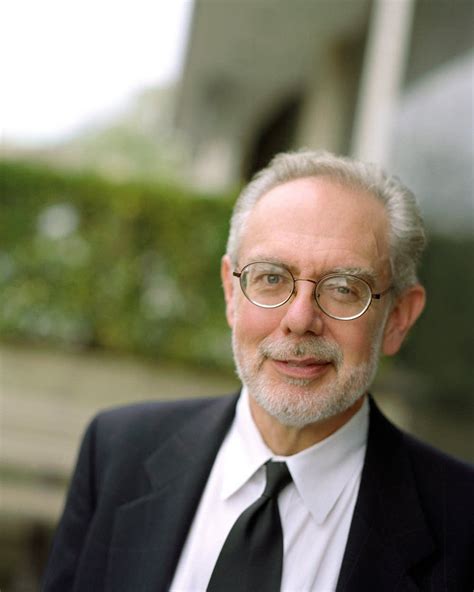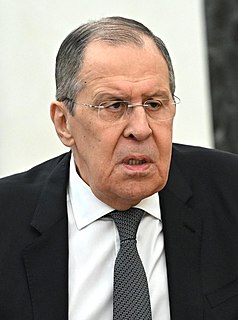A Quote by Sergei Lavrov
Russia would prefer to rebuild trust rather than allow it to further corrode. That's why, in July 2007, President Putin, in the spirit of strategic openness, proposed a truly collective effort at missile defense for Europe.
Related Quotes
President Obama has thrown allies like Israel under the bus, even as he has relaxed sanctions on Castro's Cuba. He abandoned our friends in Poland by walking away from our missile defense commitments, but is eager to give Russia's President Putin the flexibility he desires, after the election. Under my administration, our friends will see more loyalty, and Mr. Putin will see a little less flexibility and more backbone.
It is not to save capitalism that we fight in Russia … It is for a revolution of our own. … If Europe were to become once more the Europe of bankers, of fat corrupt bourgeoisies we should prefer Communism to win and destroy everything. We would rather have it all blow up than see this rottenness resplendent. Europe fights in Russia because it [i.e., Fascist Europe] is Socialist. what interests us most in the war is the revolution to follow The war cannot end without the triumph of Socialist revolution.
President Obama took charge of the Oval Office seven years ago. He promised a positive reset in relations with Russia. But with the radioactive poisoning of a British spy in London, the downing of passenger jets over Europe, and the aggressive advances of Russian forces from Ukraine to Syria, President Putin of Russia has rebuked Mr. Obama.
People take the lazy way out, and do not regard Putin and the Kremlin as the real enemy. They create a long but erroneous chain in their heads. Putin is the leader of Russia. Putin does X, therefore Russia is doing X, and Russia is our enemy. And so, we introduce sanctions, for example, against Russia.
Donald Trump, he didn't dismantle Eastern European missile defense. He didn't go to Geneva and press a plastic red button. He didn't make fun of Romney for saying Russia was an existential enemy. He didn't have a hot mic exchange with a Russian President saying that he would be more flexible with the Russians after the elections.
Donald Trump praised Russia's strong man, Vladimir Putin, even taking the astonishing step of suggesting that he prefers the Russian president to our American president. I was just thinking about all of the presidents that would just be looking at one another in total astonishment. What would Ronald Reagan say about a Republican nominee who attacks America's generals and heaps praise on Russia's president? I think we know the answer.
Vladimir Putin doesn't really gain anything economically from annexation of Crimea. It's more a gain of power. It's a gain of what he can say to his home population about what he's accomplished as president. And so it's really much more an individual gain for Putin politically than for Russia as a state, because over the long term, Russia is not going to particularly benefit from this.




































